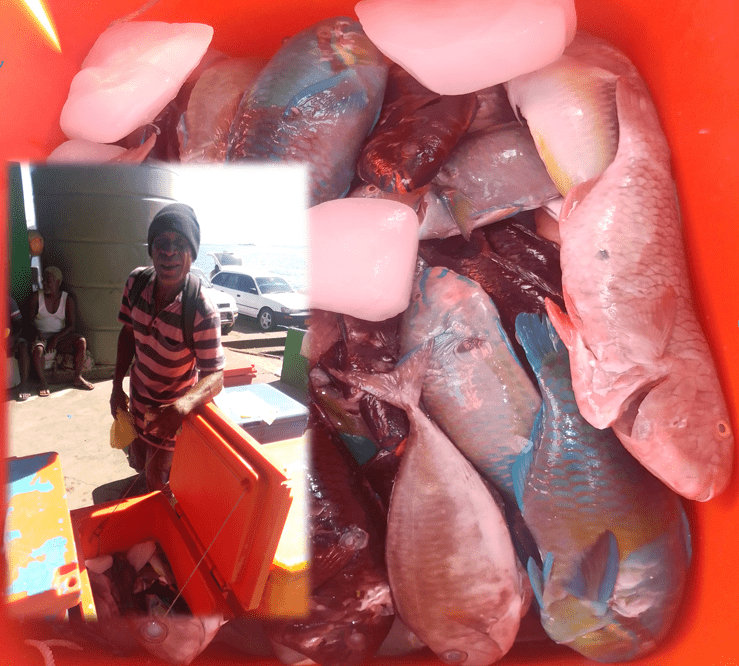BY JOHN HOUANIHAU
ONE of the reasons for the failure of protecting the Solomon Islands’ pristine coral reefs is the lack of providing education or awareness to coastal communities on the fisheries laws and regulations, regarding the importance and benefits of protecting the population of parrotfish in the country.
That’s easier said than done, and this may sound hopeless, but it’s the truth that protecting the parrotfish population can help restore damaged coral reefs but it requires a national governmental approach, coordination, and cooperation to undertake such an educational task.
Local fish market vendor, Robin Sony told Environment Media that the majority of fish vendors and fishermen in the country have lacked sustainable information about the importance of protecting the population of parrotfish in our coral reefs.
“The country’s fishermen attitudes towards conservation, management of parrotfish lacks respect for fisheries laws governing the protection of parrotfish and coral reefs; what local fishermen and fish vendors care about is to make money and meet the local customer’s high demand for parrotfish in the local markets.
“Most catches of parrotfish is done through the means of dynamite fishing, spear diving, or even using fishing nets; fishermen don’t care whatever size of parrotfish they catch because everything is sellable.
“Undersized parrotfish is amongst the dominant reef fish frequently sold at the Honiara Central Market,’’ the 49-year-old Robin said.
Under the Fisheries Management Act 2015, it is illegal or prohibited to harvest parrotfish less than the total length of 65cm and the prosecution fine is SBD $30,000 and a period of 3-month imprisonment.
While coral reefs are facing a lot of threats due to climate change, pollution to invasive species, the unsustainable, increasing, and steady harvesting of parrotfish is a concern and a major threat to the coral reefs in the Solomon Islands.
Reports cited from the national geographic society newsroom stated that one thing we can do to ensure the health of coral reefs is to protect parrotfish.
“Aside from being significant to coral reefs’ health, parrotfish also contribute to the sand on our beaches as they eat the hard part of corals which then becomes a white sandy material within their stomach and washed onto the shores after they leave it behind on the reef.
“Parrotfish are colorful and voracious herbivores that spend up to 90% of their day eating algae off of coral reefs with their beak-like teeth. And they poop sand (up to 200 pounds of it per year!).
“However, parrotfish have been overfished and reefs have gotten increasingly furry with algae over the past decade, resulting in a far less pretty picture, and a far less productive and resilient ecosystem.”




